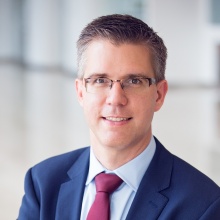We are pleased to announce that Sebastian Geiger, professor at the TU Delft, will give the SFB 1313 "Pretty Porous Science Lecture" #27. His talk will be on "Reservoir modelling for the energy transition".
Date: 15 November 2022
Time: 4:00 pm CET
Speaker: Prof. Dr. Sebastian Geiger, TU Delft
Lecture title: "Reservoir modelling for the energy transition"
Place: If you are interested in participating in the lecture, please contact melanie.lipp@iws.uni-stuttgart.de
Abstract
Geoenergy applications beyond hydrocarbons will play an essential role in accelerating the energy transition: Carbon capture and storage (CCS) is one of the most important approaches to mitigate CO2 emissions; approximately 50% of the energy consumed in the northern hemisphere is needed for heating and cooling, and the expanded use of (shallow) geothermal energy could lead to significant CO2 reduction; the development of a hydrogen economy for power, transport, and production will rely on CCS for the generation of blue hydrogen and intermittent subsurface storage in geological formations or salt caverns for the generation of green hydrogen.
All these new, low-carbon geoenergy applications need bespoke reservoir modelling approaches to estimate available pore volumes for storage reliably, capture how fluids with vastly different properties (e.g. hydrogen vs. hot water) interact with the reservoir geology, and quantify possible operational risks (e.g., early breakthrough of cold water during geothermal energy extraction). The geological uncertainties associated with these geoenergy applications can be significantly larger compared to hydrocarbon reservoirs because the characterisation of geoenergy reservoirs often relies on legacy data, for example 2D seismic lines for geothermal exploration rather than high-resolution seismic data for hydrocarbon exploration. This talk will explore how we can overcome existing limitations in static and dynamic reservoir modelling approaches to not only ensure that geological concepts are explored in an intuitive and efficient manner, but also that we end up designing meaningful reservoir models such that we can provide the reliable reservoir performance forecasts that are needed for new geoenergy applications to significantly impact our transition to a sustainable and just low-carbon energy future.


